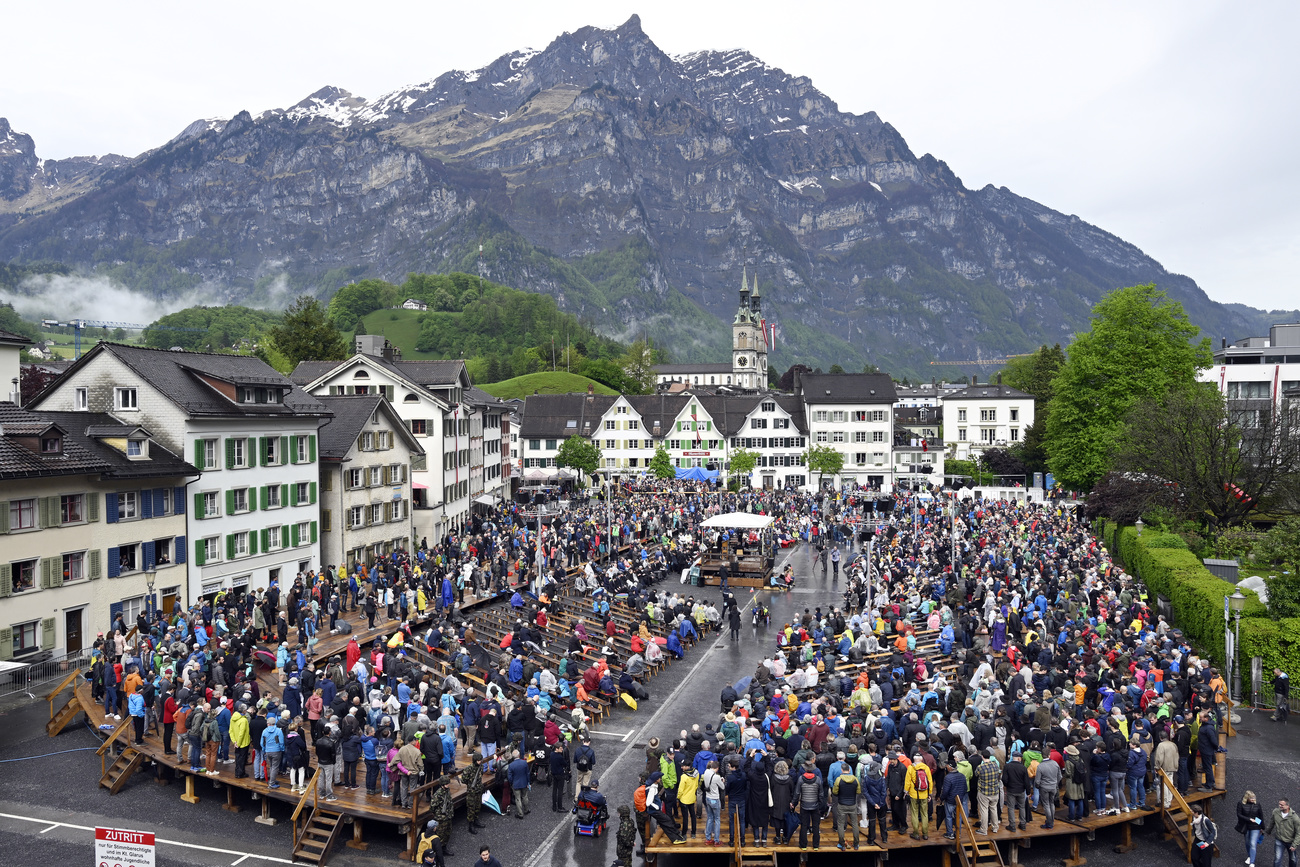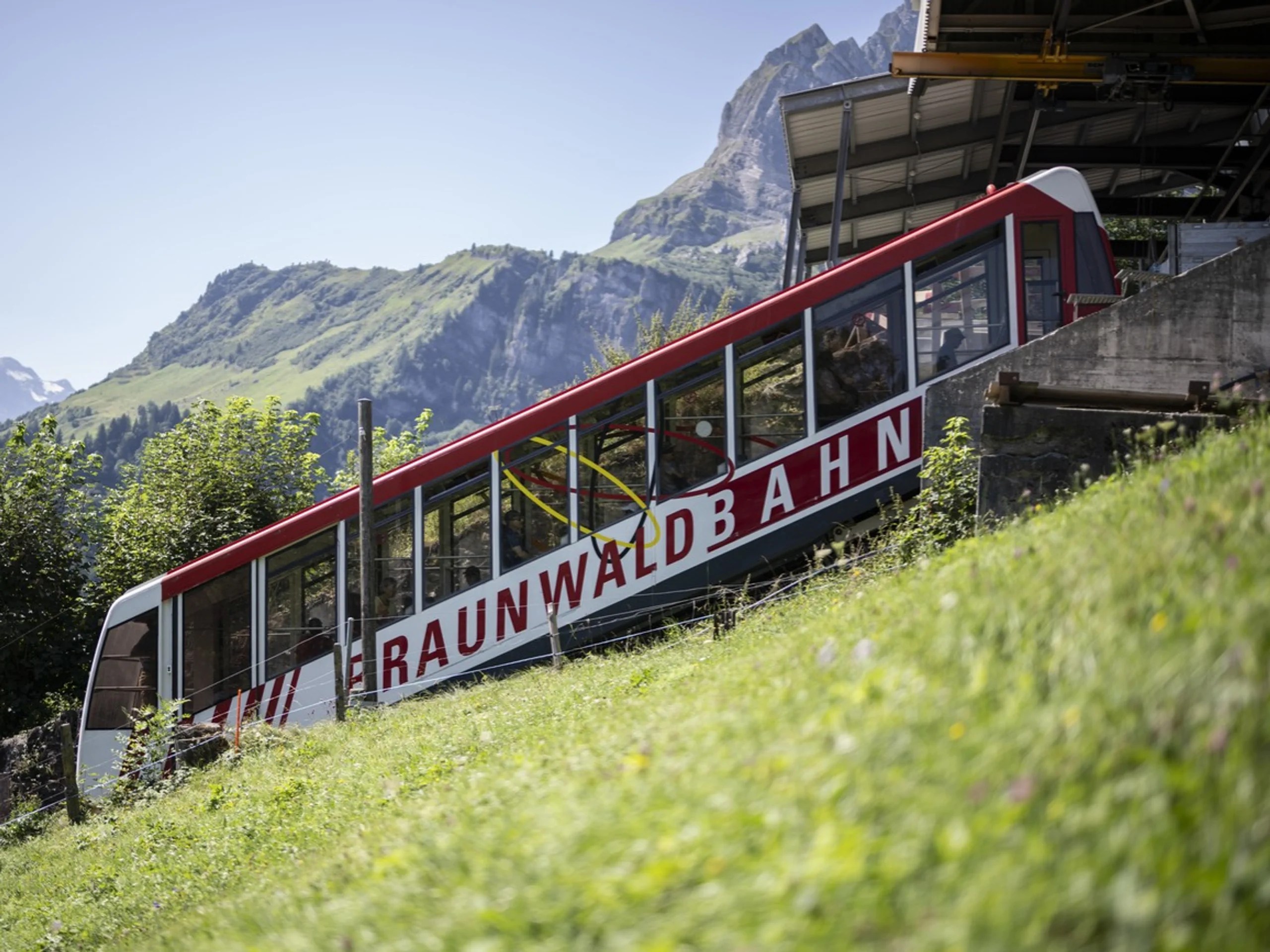Open-air assembly in Glarus: the most important items on the agenda

On the first Sunday in May, the Swiss canton of Glarus meets for its traditional open-air assembly, the Landsgemeinde. Here's an overview of the most significant items on this year’s agenda.
The 2024 Landsgemeinde will take place on May 4 on the Zaunplatz, the main square in the cantonal capital, Glarus. As is customary, proceedings begin at 9:30am with the aim of concluding by midday. This year, however, citizens may need to delay their lunch – including the traditional veal sausage – as a packed agenda could lead to longer discussions.
The Memorial – essentially the voting booklet – runs to nearly 200 pages. The list of issues is extensive, and several topics could spark heated debate.
Error in the Memorial
Canton Glarus has announced that an error has crept into the Memorial. The faux pas occurred in a graphic relating to education credits. The correct graphic is available on the canton’s website.
The full agenda and further information on this year’s Glarus cantonal assembly can be found hereExternal link.
Public transport overhaul
The eighth item on the agenda is likely to attract particular attention. A new public transport law proposes that all towns and villages in the canton should be served by a half-hourly service. The right-wing camp in the cantonal parliament has criticised the plan as unnecessary and overly expensive.

The law would also regulate access to Braunwald, the car-free spa and tourist resort. Recently, the canton invested more than CHF10 million ($12.1 million) in upgrading the existing funicular railway. Many local residents, business owners, and tourism representatives are advocating for a faster and more efficient cable car. However, the cantonal government is resisting those calls, seeking instead to cement the funicular railway’s role in law, essentially asking voters for a fundamental decision.
A Swiss first in education?
Another item that could trigger emotional debate is the proposal for education credits. The idea, initiated by a co-founder of a private school, is for the canton to provide financial support to enable every child to attend a private school instead of a state school.
The cantonal government and parliament largely oppose the plan, arguing that few children attend private schools and that public schools already offer a high standard of education. They also warn that giving families a free choice of schools would impose new costs on municipalities.
Despite the opposition, the initiator has been campaigning actively across the canton, and a formal motion at the assembly is likely. Glarus voters have a history of delivering surprise decisions, including the landmark 2007 vote to lower the voting age to 16, still unique among Swiss cantons.
Political dynamite in local government reform
Another major item concerns the revision of the Municipalities Act. Since the 2011 reform that merged 25 municipalities into three unified entities, the law has been amended so many times that a full rewrite is now planned.
The government and parliament want to give the three municipalities autonomy to decide whether they prefer a municipal parliament or a traditional town assembly.
A more contentious issue is whether foreigners should be granted voting rights at the municipal level. The government had proposed this, but the idea was narrowly rejected in the cantonal parliament and excluded from the final draft.
However, pressure from the left-green camp is mounting, and a formal proposal is expected. The left argues that each municipality should be allowed to decide whether to introduce voting rights for foreign residents.
Car-free Sundays in the Klöntal?
The Landsgemeinde will also decide on the implementation of “Slow Sundays”. This memorial proposal is about car-free Sundays in the Klöntal in order to improve the quality of recreation. Politicians have turned the planned eight Sundays into three. Will the Young Greens be satisfied with this? This business is controversial and offers plenty to discuss.
Translated from German using DeepL/amva/ts

In compliance with the JTI standards
More: SWI swissinfo.ch certified by the Journalism Trust Initiative








You can find an overview of ongoing debates with our journalists here . Please join us!
If you want to start a conversation about a topic raised in this article or want to report factual errors, email us at english@swissinfo.ch.